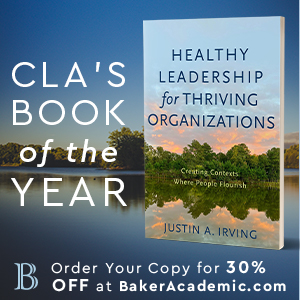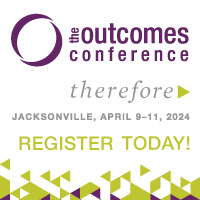
Outcomes Focused Fundraising By Rick Dunham
 Measurable outcomes matter in ministry fundraising.
Measurable outcomes matter in ministry fundraising.
There’s a line of thinking among some in Christian ministry that fundraising driven by outcomes, reflected in measuring results, is wrong. In fact, from this perspective, conducting your fundraising efforts with an eye on results is actually a reflection of an unhealthy love of money. Faithfulness to God stands in opposition to a desire and drive for greater results.
To seek greater results in order to expand the impact of one’s ministry is not a love of money but rather a reflection of a heart that wants to see God’s Kingdom advance. And to be driven by better results – and to measure those results – is an act of stewardship, not a lack of faith.
You really don’t have to look any further than the parable of the talents in Matthew 25. In this parable two of the servants were both driven by results and measured those results. The third, not so much.
Notice what the first servant told the Master in verses 19-20 (NASB):
Now after a long time the master of those slaves came and settled accounts with them. The one who had received the five talents came up and brought five more talents, saying, ‘Master, you entrusted five talents to me. See, I have gained five more talents.’
This servant was not only driven to get more for the Master, he measured the results and reported them with excitement. What was the Master’s response?
His master said to him, ‘Well done, good and faithful slave. You were faithful with a few things, I will put you in charge of many things; enter into the joy of your master.’ (Matthew 25:21)
And what about the second servant? Verse 22 tells us:
Also the one who had received the two talents came up and said, ‘Master, you entrusted two talents to me. See, I have gained two more talents.’
Just like the first servant, the second servant wasn’t only driven to get more for the Master, he measured the results and reported his success. And what was the Master’s response?
His master said to him, ‘Well done, good and faithful slave. You were faithful with a few things, I will put you in charge of many things; enter into the joy of your master.’ (Matthew 25:23)
What about the third servant? We’re told in verses 24-25:
And the one also who had received the one talent came up and said, ‘Master, I knew you to be a hard man, reaping where you did not sow and gathering where you scattered no seed. And I was afraid, and went away and hid your talent in the ground. See, you have what is yours.’
You could argue that this servant was just being faithful to ensure that the Master’s wealth was protected, and that no particular outcome was important. But the Master didn’t see it that way. Verses 26-28 record his response:
But his master answered and said to him, ‘You wicked, lazy slave, you knew that I reap where I did not sow and gather where I scattered no seed. Then you ought to have put my money in the bank, and on my arrival I would have received my money back with interest. Therefore take away the talent from him, and give it to the one who has the ten talents.’
Wow. Instead of being viewed as a faithful servant protecting his Master’s wealth, he was chastised by the Master as a “wicked, lazy slave.” Even more instructive is the fact that the Master overtly expressed that He expected a return on his wealth. He was driven by the outcomes.
There are three key takeaways that are critical if you are to approach your work in fundraising based on biblical principles:
Outcomes
It’s a Kingdom principle that results matter because they’re a measure of stewardship. Let me say it another way: Biblical stewardship is driven by outcomes – and the only way to know the outcomes of your effort is to effectively measure them.
Faithfulness
Faithfulness is expressed in seeking greater outcomes, not just operating in faithfulness to God’s truth. These are not juxtaposed, but rather they are complementary. The Master calls the two servants who were driven by the outcomes “faithful.” And the effectiveness of the outcomes couldn’t be understood apart from properly measuring them.
Responsibility
Believing outcomes are only the result of God’s work is just flat wrong. God expects us to effectively invest the resources (money, time, people, communication media, etc.) He’s put in our trust to gain increased outcomes for Him. That’s exactly what He honored in this parable. We bear a responsibility for outcomes.
The pathway to effective stewardship and biblical fundraising is to urgently seek the best possible outcome for the Master. And the only way to know if you’ve achieved that result is to measure what you do.
####
Rick Dunham is the founder and CEO of Dunham + Company. Rick is the author of Secure and If God Will Provide, Then Why Do We Ask?

BECOME A MEMBER OF CLA
Christian Leadership Alliance (CLA) equips and unites its members through shared learning experiences that include Christ-centered leadership training, spiritual inspiration, and personal encouragement. Leaders professionally and spiritually flourish by actively participating in the annual Outcomes Conference, the quarterly Outcomes Academy, and the vibrant communities found in the Outcomes Community Network. CLA fuels higher thinking through its publications and numerous 24/7 digital resources.

What is Christian Leadership Alliance?
Christian Leadership Alliance equips and unites leaders to transform the world for Christ. We are the leaders of Christ-centered organizations who are dedicated to faithful stewardship for greater kingdom impact.
Sign up for FREE blog updates.
Upcoming Events
Check back later!



